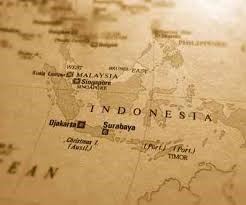 An Indonesia ICSID arbitration has been found to be inadmissible on the basis of fraud. By an award on 6 December 2016, the Arbitral Tribunal of the International Center for Settlement of Investment Disputes (ICSID) rejected Churchill Mining and Planet Mining Pty Ltd’s claim for compensation (USD 1.95 billion) against the Republic of Indonesia under the 1992 BIT between Australia and Indonesia, as well as the 1976 BIT between Indonesia and the United Kingdom of Great Britain and Northern Ireland, and ordered the claimant to pay USD 9.45 million in costs to the State.[1]
An Indonesia ICSID arbitration has been found to be inadmissible on the basis of fraud. By an award on 6 December 2016, the Arbitral Tribunal of the International Center for Settlement of Investment Disputes (ICSID) rejected Churchill Mining and Planet Mining Pty Ltd’s claim for compensation (USD 1.95 billion) against the Republic of Indonesia under the 1992 BIT between Australia and Indonesia, as well as the 1976 BIT between Indonesia and the United Kingdom of Great Britain and Northern Ireland, and ordered the claimant to pay USD 9.45 million in costs to the State.[1]
Churchill and its Australian subsidiary Planet Mining Pty started activities in Indonesia in 2008 and became the 75% owner of the Ridlatama Group. However, in 2010, the regional administration of East Kutai revoked the Group’s coal-mining permits for forgery, which Claimant alleged resulted in losses of USD 1.3 billion.
The ICSID Tribunal, going through evidence submitted by the Parties, found that “a fraudulent scheme permeated the Claimants’ investments in the EKCP. […] The question is thus whether, on the ground of the legal principles just set forth, the claims can still deserve protection or whether they must be dismissed. The Tribunal views this question as a matter of admissibility. […] The Tribunal agrees with the Respondent that claims arising from rights based on fraud or forgery which a claimant deliberately or unreasonably ignored are inadmissible as a matter of international public policy.”[2]
The Arbitral goes further and states that it “is struck by the seriousness of the fraud that taints the entire EKCP (a) and by the Claimants’ lack of diligence overseeing the licensing process and investigating allegations of forgery (b).”[3]
The Arbitral Tribunal therefore found there was forgery “to implement a fraud aimed at obtaining mining rights”,[4] and “[a]s a result, the general principle of good faith and the prohibition of abuse of process entail that the claims before this Tribunal cannot benefit from investment protection under the Treaties and are, consequently, deemed inadmissible.”[5]
This case brings up a recurrent problem in Indonesia of mining permits issued by regional administrations. This relates to the 2009 Mining Law that grants regional administrations a broad power to issue mining licenses to any mining companies with little oversight.
Perhaps the positive results of the latest Indonesia ICSID arbitration will diminish recent calls for Indonesia to withdraw from the ICSID Convention.
[1] Churchill Mining and Planet Mining Pty Ltd, formerly ARB/12/40 v. Republic of Indonesia (ICSID Case No. ARB/12/40 and 12/14).
[2] Churchill Mining and Planet Mining Pty Ltd, formerly ARB/12/40 v. Republic of Indonesia (ICSID Case No. ARB/12/40 and 12/14), para. 507.
[3] Churchill Mining and Planet Mining Pty Ltd, formerly ARB/12/40 v. Republic of Indonesia (ICSID Case No. ARB/12/40 and 12/14), para. 509.
[4] Churchill Mining and Planet Mining Pty Ltd, formerly ARB/12/40 v. Republic of Indonesia (ICSID Case No. ARB/12/40 and 12/14), para. 528.
[5] Churchill Mining and Planet Mining Pty Ltd, formerly ARB/12/40 v. Republic of Indonesia (ICSID Case No. ARB/12/40 and 12/14), para. 528.
